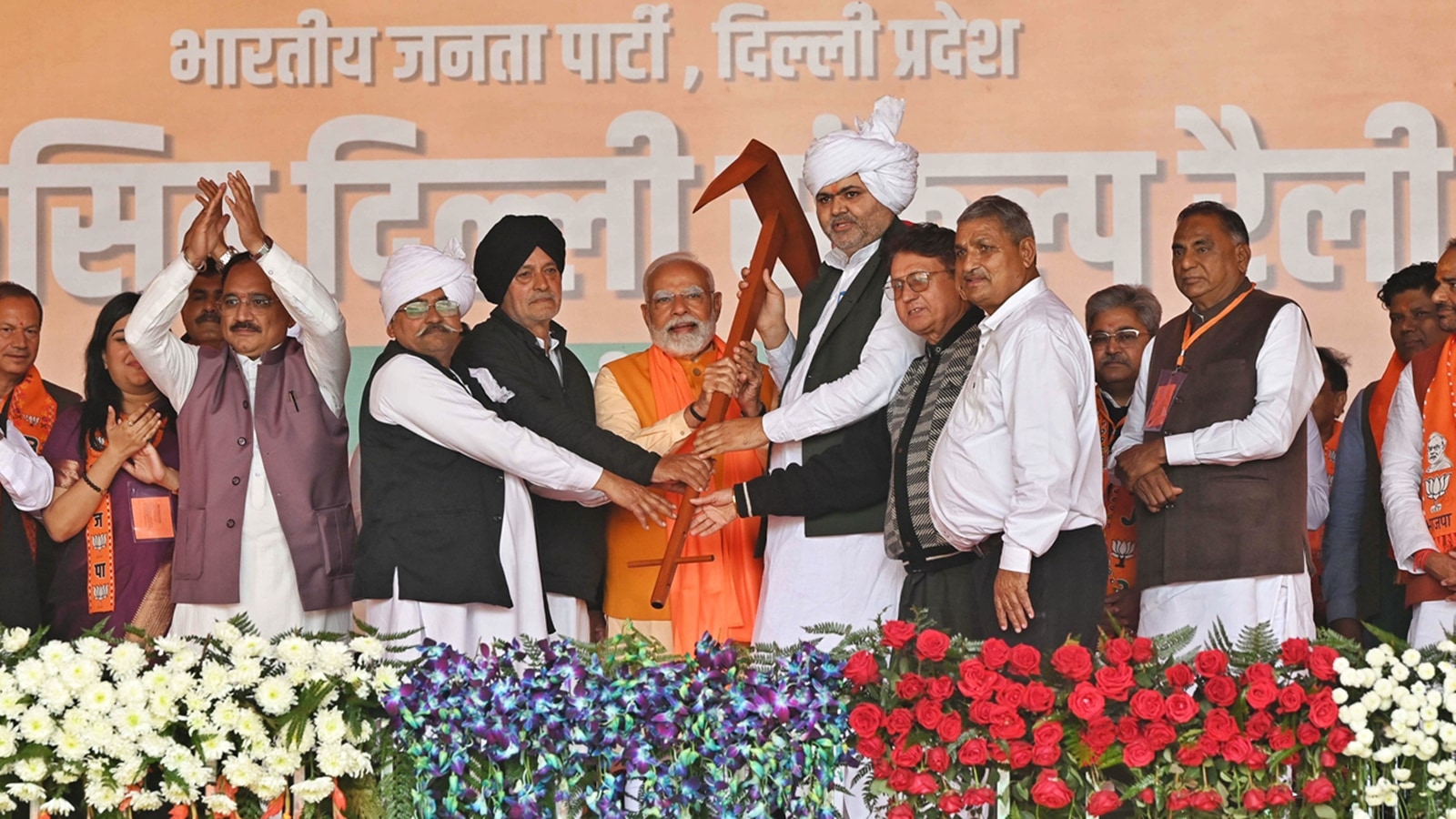 |
|
Prime Minister Narendra Modi's recent rally in Delhi showcased a strategic blend of campaigning and policy promotion. With the Delhi Assembly elections nearing their conclusion, Modi seized the opportunity to frame the recently presented Union Budget as a significant boon for the middle class, a key demographic in the upcoming vote. He emphasized the tax rebate for those earning up to ₹12 lakh annually, directly addressing a segment of the population often impacted by fiscal policies. This targeted messaging underscored the BJP's commitment to economic relief for a crucial voting bloc and positioned their economic policies in direct contrast to the opposition's.
Beyond the budget, Modi's speech incorporated specific promises tailored to the Delhi electorate. The pledge to implement the Ayushman Bharat healthcare scheme, notably absent in Delhi, directly countered the AAP's own healthcare proposals. This promise highlighted a key area of policy divergence between the BJP and the ruling AAP, providing a clear choice for voters. The added promise of an extra ₹5 lakh in health insurance coverage, exceeding the existing Ayushman Bharat cover, further enhanced the BJP's offering, presenting a potentially compelling alternative to the AAP's free healthcare initiatives for senior citizens. This tactical move effectively addressed anxieties around healthcare access and costs.
The speech wasn't limited to policy pronouncements; it also incorporated pointed criticism of the Aam Aadmi Party (AAP), the incumbent party. Modi repeatedly labeled the AAP administration as 'AAPda,' translating to 'calamity,' effectively painting a negative picture of their governance record. He highlighted the recent defection of eight AAP MLAs to the BJP as evidence of internal discord and dissatisfaction within the AAP, attempting to erode the public's confidence in the current leadership. This tactic employed the strategy of exploiting perceived weaknesses within the opponent's camp to bolster the BJP's appeal.
Addressing the youth, Modi underscored job creation and skill development initiatives, emphasizing the government's support for gig workers through a new registration portal offering insurance and other benefits. This recognition of the burgeoning gig economy demonstrated an awareness of contemporary employment trends and provided a message of inclusivity and support for a younger demographic. This strategy also countered any arguments regarding economic opportunities potentially being neglected by the government.
Modi's mention of Bihar and its upcoming elections provided a broader context to his speech, subtly hinting at a national appeal beyond the Delhi state elections. By acknowledging the positive feedback he received regarding the budget from Bihar and Purvanchal, Modi demonstrated a calculated attempt to connect with a wider audience, showcasing the budget's implications far beyond Delhi. This strategic move strategically linked local election matters with a national narrative, potentially further bolstering his appeal.
The speech strategically utilized the backdrop of Basant Panchami, a significant Hindu festival, to infuse a sense of auspiciousness and optimism into his message. Linking the election date, February 5th, to the promise of a “new spring of development” cleverly leveraged symbolic resonance to cultivate a positive emotional connection with voters. This approach infused the political message with cultural relevance, potentially swaying sentiments in favor of the BJP.
In essence, Modi’s rally demonstrated a masterful blend of policy promises, targeted criticism of the opposition, and strategic use of symbolism to garner support in the crucial Delhi Assembly elections. The focus on the middle class, healthcare improvements, and veiled criticism of the ruling party created a persuasive narrative emphasizing the BJP's superior vision for Delhi's future. The speech highlights the importance of crafting a well-defined message that resonates with multiple voter segments, underscoring the sophistication of modern political campaigning.
Source: Modi tells Delhi voters: Most middle class-friendly Budget
